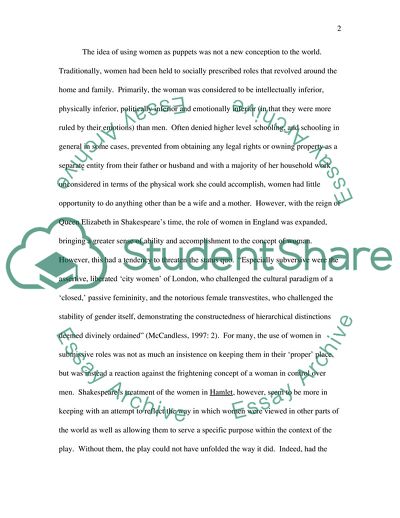Cite this document
(Hamlet: Womens Roles as Seen in Gertrude and Ophelia Essay Example | Topics and Well Written Essays - 2250 words, n.d.)
Hamlet: Womens Roles as Seen in Gertrude and Ophelia Essay Example | Topics and Well Written Essays - 2250 words. https://studentshare.org/miscellaneous/1706978-shakespear
Hamlet: Womens Roles as Seen in Gertrude and Ophelia Essay Example | Topics and Well Written Essays - 2250 words. https://studentshare.org/miscellaneous/1706978-shakespear
(Hamlet: Womens Roles As Seen in Gertrude and Ophelia Essay Example | Topics and Well Written Essays - 2250 Words)
Hamlet: Womens Roles As Seen in Gertrude and Ophelia Essay Example | Topics and Well Written Essays - 2250 Words. https://studentshare.org/miscellaneous/1706978-shakespear.
Hamlet: Womens Roles As Seen in Gertrude and Ophelia Essay Example | Topics and Well Written Essays - 2250 Words. https://studentshare.org/miscellaneous/1706978-shakespear.
“Hamlet: Womens Roles As Seen in Gertrude and Ophelia Essay Example | Topics and Well Written Essays - 2250 Words”. https://studentshare.org/miscellaneous/1706978-shakespear.


